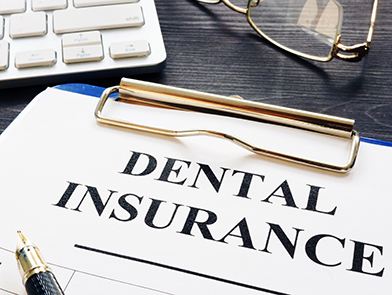Patient Information
The team at Rhodes & Rhodes Family Dentistry is committed to providing excellent dental care in a comfortable environment where patients can relax and feel at ease. Here you will find information on what to expect during your first appointment along with links to patient forms and paperwork.
Contact Us
We are happy to hear from you, answer your questions, and schedule an appointment. Call Rhodes & Rhodes Family Dentistry at 205-409-0102 or stop by our office.
6000 Old Greensboro Rd.
Tuscaloosa, AL 35405
New Patients
It is easy to make an appointment for your initial examination and dental treatments. Call 205-409-0102 to speak with a team member and you can download the New Patient Form by clicking to the right.
Downloadable Forms:
Welcome to
Rhodes & Rhodes Family Dentistry

Making an Appointment
It is easy to make an appointment for your initial examination and dental treatments with Rhodes & Rhodes Family Dentistry. Simply call 205-409-0102 and one of our friendly team members will be happy to assist you. If you schedule an appointment and something comes up, please call and cancel 24 hours in advance so that we can accommodate other patient requests.

What to Expect
Walk into our lobby where you will be greeted by our friendly team. We will provide you with new patient paperwork that includes a health questionnaire, request for your insurance information and contact information. We will also provide you with information to familiarize you with our office and how we handle things like patient privacy.

Initial Examination
Your initial dental exam will take around one hour. The experienced team at Rhodes & Rhodes Family Dentistry will ask you questions, get to know your oral hygiene routine, and listen to your health concerns. We believe in educating patients and empowering them to make good choices to improve their oral health. We will demonstrate how to properly care for your teeth and make additional suggestions as needed. Our dental hygienist will clean your teeth then Dr. Melinda Rhodes and Dr. Belinda Rhodes will complete your examination and make recommendations for proposed dental treatments.

Pain Concerns
We work to ensure our patients feel comfortable, and that includes minimizing their pain as much as possible. If you are undergoing a dental procedure, Dr. Melinda Rhodes and Dr. Belinda Rhodes will meet with you to discuss your pain tolerance and create a plan for pain management. Working together, we will treat your dental health problems in a way that minimizes pain and enables you to get back to your life faster.

Dental Insurance
We accept a variety of insurance providers and endeavor to accommodate our patients' request. Please call our office at 205-409-0102 to see if we are currently working with your insurance provider.
Our pricing structure is designed to ensure that patients are able to receive the high quality dental care they deserve. If your dental insurance will not cover all of your dental treatments, we will work with you to identify a payment solution. We are health care professionals first and will work with you to make sure you receive the treatment you need.

Financial Policy
Rhodes & Rhodes Family Dentistry provides high quality dental care to families throughout the Tuscaloosa area. We understand that every dental patient has different financial needs. We will work with you to find a solution that enables you to get the dental care you need, with or without insurance. Call our office to ask about our different payment options that may include cash, financing, and credit cards. We provide budget friendly dental care so call today and learn how Rhodes & Rhodes Family Dentistry is the solution to all of your oral health needs.
